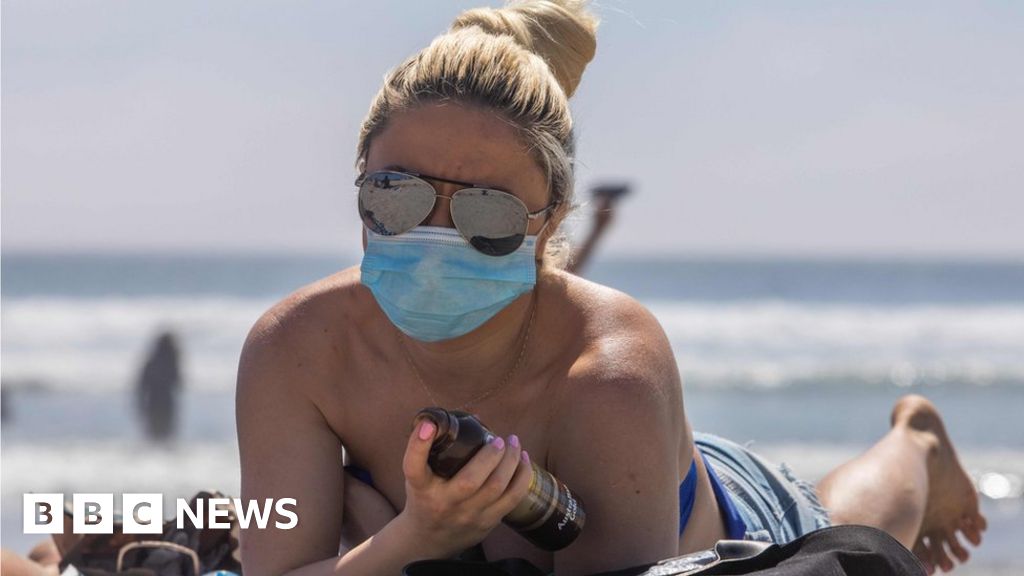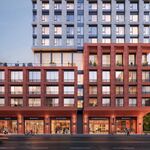SunriseChampion
Senior Member
Without sending me a link, can someone tell me what the 5G covid conspiracy is about?
Oh yeah.
So, people think that 5G is causing Covid-19.
That's just the basic conspiracy. It gets worse.
Without sending me a link, can someone tell me what the 5G covid conspiracy is about?
As I look at the temporary clearing of global pollution I come to think that so much of the economic activity we undertake is both needless and essential. So much consumerism, usually debt fuelled to fill our closets with clothes and shoes, our homes and pockets with electronics, our driveways with bank-owned cars, and our stomachs filled at restaurants. I consider myself a bit of an outlier in that I buy clothes and footwear to last years, and rely on older electronics, since it still works, and I don’t eat out much, preferring to cook at home. My car is 21 years old and still ticking. So, the Covid19 shutdown hasn’t been much of a lifestyle change for me, other than being home from the office. Both my wife’s and employers are deemed essential, so we’re all still employed.
But I think what would happen if the world ran like I did, with a permanent Covid slowdown of consumerism. The clothing factories in Bangladesh, the electronics factories in China, the global car factories, the restaurants in Canada, etc, etc... all these people depend on everyone consuming, even if it destroys them through debt, environmental damage, hoarding, etc. Of course my employer, essential or not needs consumers to have income themselves to buy our products. So, while this Covid19 economic and environmental pause is in ways a nice break, we will need a different way for humanity to sustain itself if we ever want to permanently keep the best parts of this global shutdown.
It certainly does bring to the fore the question: how sustainable, if even necessary, is our sacred economic model that is based on endless, exponential growth? It makes me sick that we're pressured constantly by society to acquire more "stuff" just for what - for people to have jobs? It's a meaningless existence that feeds on itself like a succubus. Perhaps we're well overdue for a re-evaluation of our priorities.
When Canada closed its border mid-March due to the pandemic, John Alan Aucoin and other Canadians were unequivocally assured their spouses from abroad would be allowed into the country despite the travel bans.
Little did they know it would come with a catch. Canada Border Services Agency actually had its own rules when applying the government order.
Aucoin didn’t expect his American wife, Adrienne Berg Yorinks, to have trouble coming home to Cape Breton. The couple’s only concern returning from Florida was being able to drive through Maine and New York with those states in lockdown.
But like many foreigner nationals married to Canadians but yet to become permanent residents, Yorinks was refused entry at the border. The couple have been separated for weeks now, one in Florida, the other in Nova Scotia, not knowing when the border will reopen.
“Adrienne was not on a shopping trip. It was not an optional travel. She’s travelling to our primary home with me, a Canadian,” said Aucoin, who met his now wife in 2014. They wed in 2018.
“The fact is Canadian families are being separated notwithstanding of our prime minister’s assertions.”
On March 16, when Prime Minister Justin Trudeau announced the border would be closed to non-Canadians, he made exceptions for immediate family members of Canadian citizens and permanent residents. The travel ban, as stated in the government’s orders, was to curtail the spread of COVID-19.
However, since April, a growing number of foreign spouses and children of Canadians have been refused admission into Canada because their travels are deemed “non-essential and optional” by Canadian border agents at airports and land border crossings, said lawyers.
“The Order-in-Council is very clear that immediate family members of a Canadian citizen or permanent resident are exempted from the travel restrictions,” said Barbara Jo Caruso, a former chair of the Canadian Bar Association’s immigration division.
“It appeared the border was open for a period of time, and then they started tightening it in early April. And now nobody gets in except if (the travel) is of essential nature.”
On Good Friday, after being on the road for hours driving back from Juno Beach, Fla., Aucoin, a retired lawyer, and Yorinks, an artist and author, arrived at the border crossing between Calais, Maine and Saint Stephen, N.B. at 5:30 a.m. A border agent refused to let Yorinks in because her travel was deemed non-essential.
When the couple returned to the United States border entry, American officials refused to let Aucoin in because Washington’s COVID-19 travel ban doesn’t have provisions to exempt foreign spouses accompanying Americans.
“It’s been a roller-coaster for us, and we have tried to keep our spirits up,” said Aucoin, who had consulted a lawyer, obtained a notarized statement from the Justice of Peace who married them in Cape Breton and drafted a quarantine plan upon arrival. Yorinks ended up having to drive home to their winter home in Florida by herself.
Immigration lawyer Rafeena Rashid, who used to represent the federal Justice Department and now has her own practice, said her clients — a British and Canadian couple — boarded a government repatriation flight to Toronto Pearson airport April 13 after Global Affairs Canada cleared them.
However, the border agency seized the British husband’s passport and sent him back to the U.K. the next day. The couple are still separated.
“It is very clear that one thing is said to the public while something else is done behind the scenes by CBSA,” said Rashid. “CBSA absolutely has no oversight. Zero. Who’s CBSA to come up with its own criteria that’s not based on the law?”
In response to the Star’s inquiry, the border agency referred to a provision in the government’s COVID travel orders that says: A foreign national, including a Canadian’s immediate family member, is banned from entry if they seek to enter for an optional or discretionary purpose, such as tourism, recreation or entertainment.
However, an internal instruction for front-line border agents obtained by the Star revealed that Canada Border Services Agency actually has set criteria beyond that.
The guidelines include, among other criteria, a ban against a “foreign national coming to Canada to temporarily reside with spouse or immediate family during the pandemic.”
The immigration department last week also posted on its website examples of what are deemed discretionary: visit family on vacation; spend time at a secondary residence; attend a funeral; and birth of a grandchild.
What is not discretionary, it says, is for people to spend the pandemic period with their Canadian family member to ensure each other’s health, safety and well-being. “It would be beneficial to all parties, as the reunification of family members is a key point of the Order in Council,” it notes. “This allows for families to be together during this difficult time.”
Lawyers said the border agency’s own rules go against the spirit of the government order.
“There’s a consistent reference to essential travels, and they don’t see keeping a family together in crisis as essential,” said lawyer Erin Simpson, who has filed a court challenge against a border agency decision to deny one of her client’s entry to Canada.
Nadia Drost of Toronto said her Italian journalist husband, Bruno Federico, was denied entry at Pearson airport on April 22 and sent back to New York City, where he had travelled for an assignment for a documentary about COVID-19. The two had already booked an Airbnb for his 14-day quarantine.
“It’s wrong that border officers are following secret guidelines that are different from what the public is privy to,” said the 42-year-old Toronto woman, also a journalist. “We need oversight of CBSA in the way they interpret the government order. They’ve got to square up.”
More likely the CBSA guys didn't know the rules. I did this job at Pearson in the early 1990s before I went to the private sector. The front line and even back office guys don't get half the info they need.When the Canada Border Services Agency makes up their own rules in conflict with the rules made in Ottawa, and don't tell the public about it.
More likely the CBSA guys didn't know the rules. I did this job at Pearson in the early 1990s before I went to the private sector. The front line and even back office guys don't get half the info they need.

Coronavirus: What global travel may look like ahead of a vaccine
3 May 2020
Sun loungers separated by plexiglass. Blood tests and sanitiser spray-downs before flights. These might sound extreme, but they are real measures some in the travel industry are looking at to keep holidaymakers feeling safe and comfortable in a post-lockdown world.

Coronavirus: What global travel may look like ahead of a vaccine
As countries ease their coronavirus restrictions, what can would-be travellers expect to experience?www.bbc.com
Coronavirus: What global travel may look like ahead of a vaccine
3 May 2020
Sun loungers separated by plexiglass. Blood tests and sanitiser spray-downs before flights. These might sound extreme, but they are real measures some in the travel industry are looking at to keep holidaymakers feeling safe and comfortable in a post-lockdown world.

Coronavirus: What global travel may look like ahead of a vaccine
As countries ease their coronavirus restrictions, what can would-be travellers expect to experience?www.bbc.com
To avoid too many problems I can see them allowing dual citizens to travel provided they undergo screening at the airport to ensure they are not contagious.
People need to travel for work, people have lives in two different countries.. you cannot restrict air travel forever. Yes leisure travel may be restricted but people like myself who are citizens of 3 countries should be allowed to travel provided they are not contagious.
Sounds ridiculous. All the more reason to not travel anywhere but around Canada.
I guess I'm not going to see my family in EU for a while.




